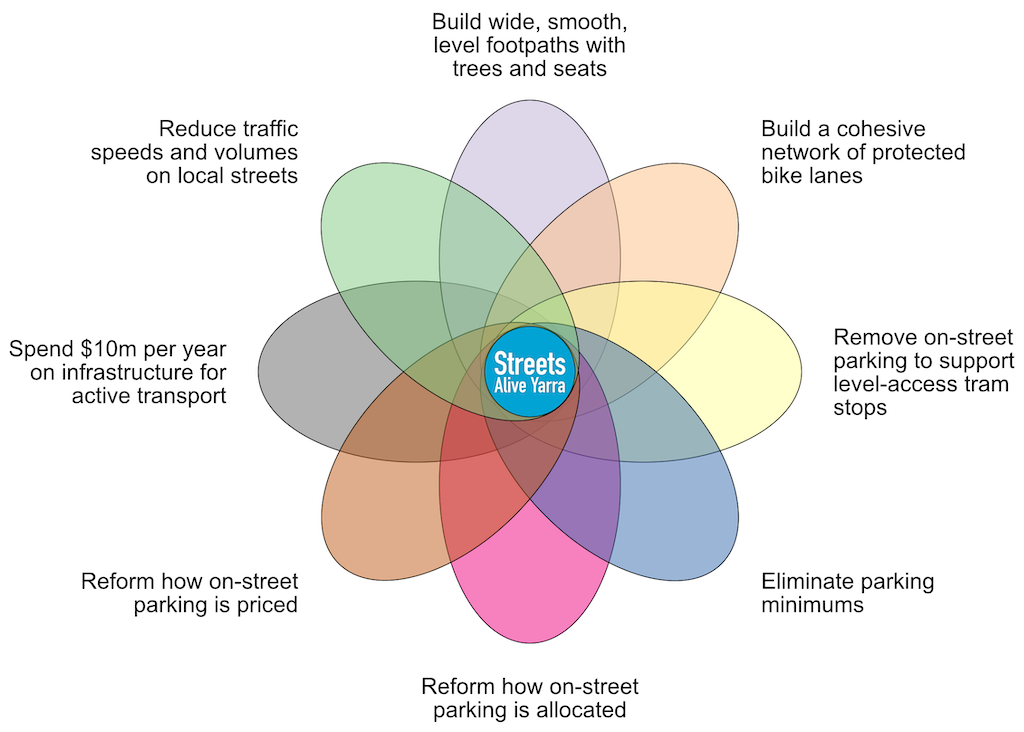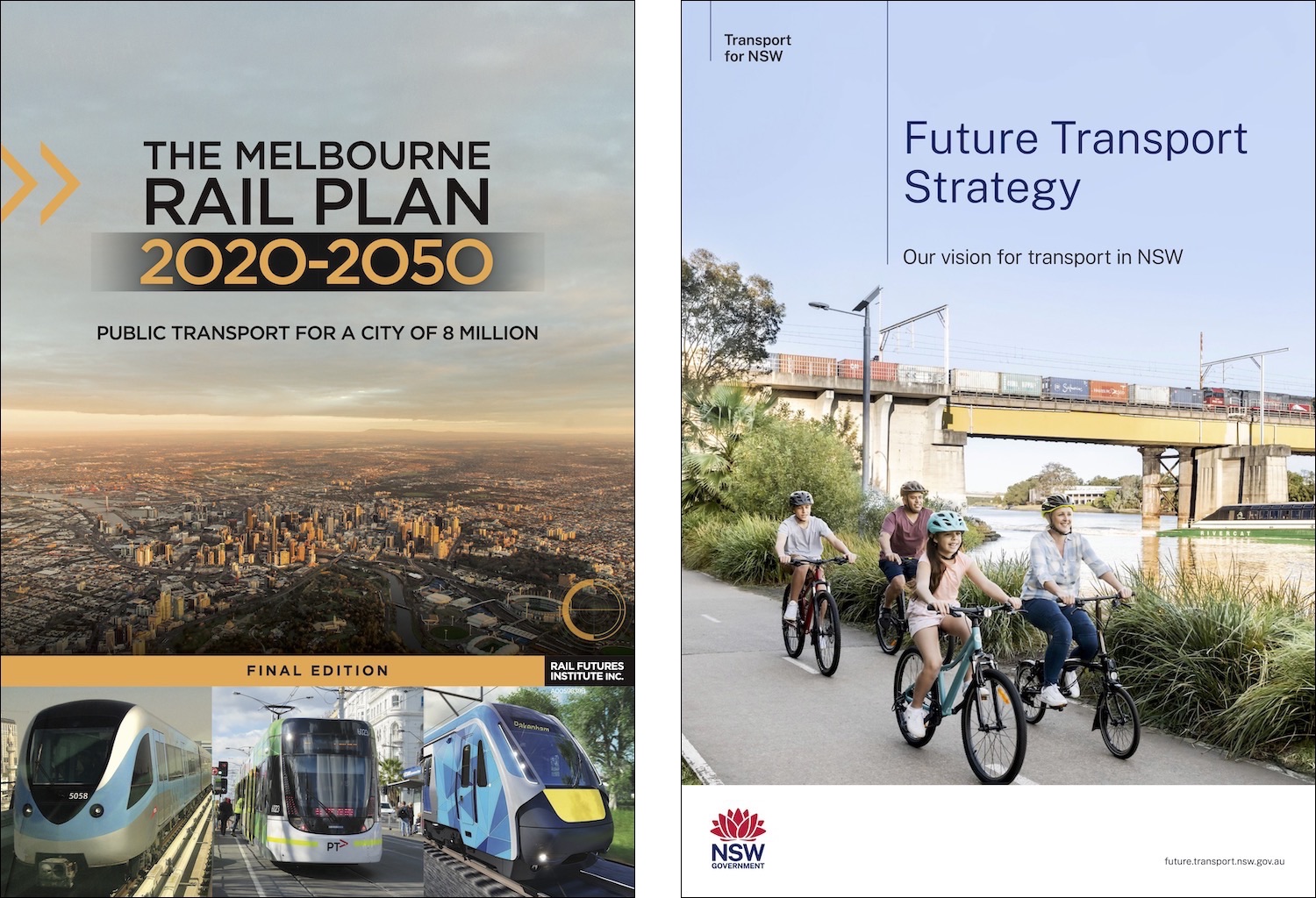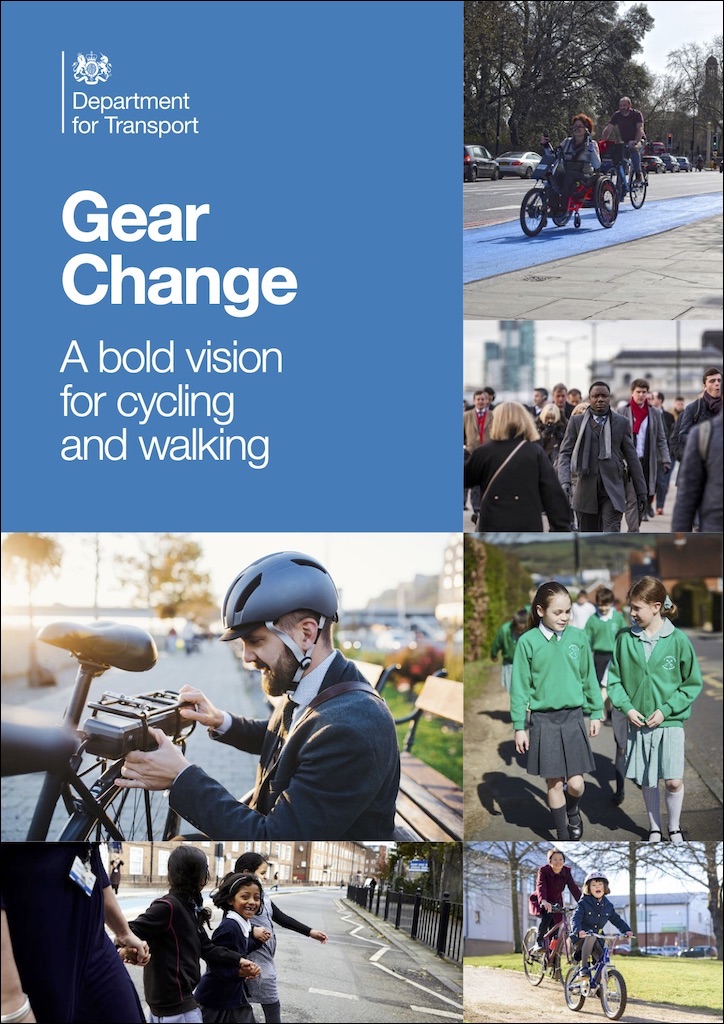Let’s build a beautiful, liveable and accessible city
Local Government
- Convert each block into a 30 km/h High Access Neighbourhood, with traffic calming and modal filters.
- Deliver an additional 3 km of protected bike lanes each year, a new pocket park each quarter, and a new wombat crossing each month.
- Adopt best-practice requirements for crossovers, and re-build 20 km of footpaths each year (including their crossovers) to improve their width and flatness, along with prohibiting all footpath parking.
- Reallocate 5,000 parking bays to deliver 1,000 mobility and access zones across Yarra, each with a loading bay, a disabled parking bay, a car share bay, a corral for shared e-scooters, and a hangar for private e-bikes.
- Eliminate costly parking mandates from the planning scheme, and reform the management of on-street parking so that people are able to find a park and avoid a fine.
- Allocate $10 million per year for walking, biking, trees, and place making, guided by the Transport Strategy and the Place Making Framework, funded by the revenue gained from reforms to the pricing of on-street parking.

State Government
- Deliver the VicRoads Principal Bicycle Network on state government controlled arterial roads, with a budget of $100 million per year; including revitalising arterial shopping streets with wider footpaths, protected bicycle lanes, protected intersections and level access tram stops.
- Give councils authority to design and implement traffic control devices on local streets, e.g. to deliver wombat crossings and modal filters (as has been done in NSW); and the authority to designate 30 km/h zones, via a revision to the Speed Zoning Policy.
- Speed up trams by using smart traffic lights to clear intersections as trams approach.
- Eliminate costly parking mandates from all planning schemes across Victoria, and expand the off-street parking levy to encompass all inner-city properties within the Principal Public Transport Network area.
- Manage driving congestion on state government controlled roads by imposing demand responsive driving charges.
- Develop and implement an Integrated Transport Plan for greater Melbourne, based on the Melbourne Rail Plan 2020-2050 and the NSW Future Transport Strategy.
- Fund walking and biking on council controlled streets via grants of up to $100 per person per year to each council in Victoria, i.e. $10 million per year for Yarra from a total of $0.7 billion per year.

Federal Government
- Adopt a National Urban Policy that supports or funds 6-storey mixed-use buildings within walking distance of train and tram stops, 30 km/h Low Traffic Neighbourhoods, and a cohesive network of protected bike lanes.
- Link federal transport funding to state, territory and local governments with requirements to adopt best-practice guidelines for the design and construction of footpaths and bike lanes.
- Fund walking and biking on council controlled streets via recurring grants of $100 per person per year to each council in Australia, i.e. $10 million per year for Yarra from a total of $2.5 billion per year.
- Manage congestion on federal highways with demand responsive driving charges.
- Redirect funding from commuter car parks at train stations toward walking, e-biking, bike parking, and buses.

How you can help
You can help by appearing on the Streets Alive Yarra website as a champion for your local street, neighbourhood, or school.
